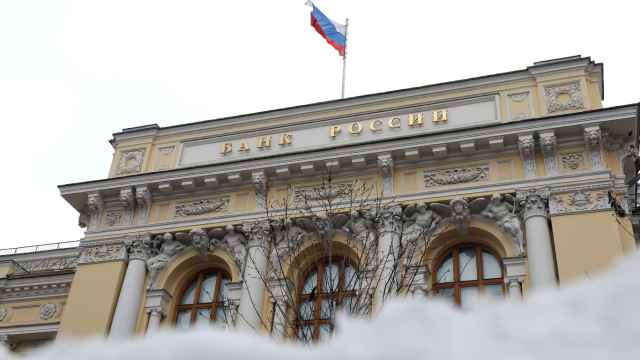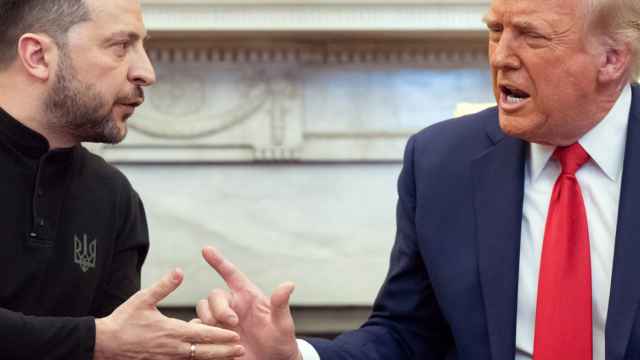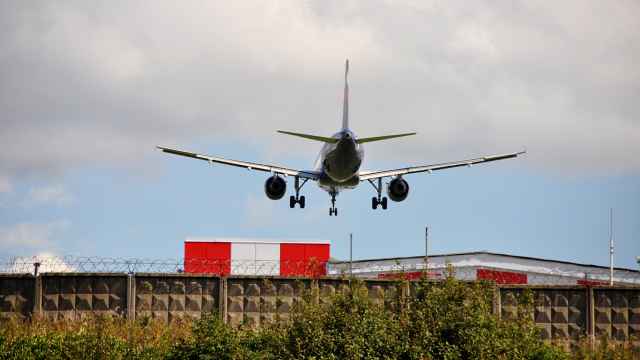Vladimir Putin faced the challenge of his life in 2000 when he took the helm of a country whose economy was crippled by greedy billionaires, self-serving governors, a weak federal government and disarray in many sectors. Now Putin has set a new, more daunting challenge, and he doesn’t have the luxury of relying on growing oil prices as he did in the 2000s. Putin wants to make Russia one of the world’s top five economies within five years.
Putin announced this goal at last weekend’s United Russia convention, where he also declared his intention to return to the Kremlin in 2012. With the next presidential term ending in 2018, Putin would be in charge for the five-year window that he wants to use to expand the economy. The good news for foreign investors is that where there is a challenge for Putin, there is an opportunity to make money.
Challenge No. 1: Putin has to take into account the ever-growing demands of the Russian people. In 2000, a weary population just wanted to be able to put food on the table after the chaotic 1990s and even 1980s, and they were willing to forgo democratic freedoms in exchange for stability. Today, the country has a sizeable middle class that wants to see its salaries increase with inflation. Putin must find a way for these citizens to maintain their purchasing power.
Opportunity: Investors can supply the growing demands of the middle class in Moscow and the other 11 cities with populations of 1 million or more. These consumers have an expanding appetite for goods ranging from cars to health food. By meeting these demands, investors can also supply jobs — and good salaries — to a bright, well-educated work force.
Challenge No. 2: Putin needs to continue to steer the economy away from oil and gas.
Opportunity: There is little room for foreign investors in oil and gas — or natural resources in general. But, similar to the previous opportunity, favorable circumstances abound in the automotive sector, agriculture, high-technology areas like the Internet, and the service sector, as illustrated by fast-growing retail chains like Auchan and IKEA. These are growth markets where the government is courting investment. In addition to meeting demand, investors can improve the quality of services by introducing Western norms.
Challenge No. 3: Putin must push through trillion-dollar reforms, including in the defense, health-care, education and infrastructure sectors.
Opportunity: While foreign investors might be less welcome in the defense sector, huge opportunities are available countrywide in the other areas, particularly in the infrastructure of road construction, housing, railroads and aviation. The government also is plowing billions of dollars into the 2014 Sochi Winter Olympics and the 2018 football World Cup.
Putin faces other challenges, too, like the triple bogeymen of corruption, capital flight and weak rule of law. Indeed, bribery flourished during Putin’s eight-year presidency, fueled in part by growing bureaucracy, and his likely return to the Kremlin raises fears that it will continue.
Foreign investors have the chance to play a role in stamping out this evil by refusing to participate in it. Some investors are already standing up and saying, “No.” If the investment community joins them as a whole, corrupt officials ultimately will lose out because Putin has shown a determination in words and deeds to attract foreign investors — the people needed to help this country advance toward his goal of becoming a top five economy by 2016.
A Message from The Moscow Times:
Dear readers,
We are facing unprecedented challenges. Russia's Prosecutor General's Office has designated The Moscow Times as an "undesirable" organization, criminalizing our work and putting our staff at risk of prosecution. This follows our earlier unjust labeling as a "foreign agent."
These actions are direct attempts to silence independent journalism in Russia. The authorities claim our work "discredits the decisions of the Russian leadership." We see things differently: we strive to provide accurate, unbiased reporting on Russia.
We, the journalists of The Moscow Times, refuse to be silenced. But to continue our work, we need your help.
Your support, no matter how small, makes a world of difference. If you can, please support us monthly starting from just $2. It's quick to set up, and every contribution makes a significant impact.
By supporting The Moscow Times, you're defending open, independent journalism in the face of repression. Thank you for standing with us.
Remind me later.





